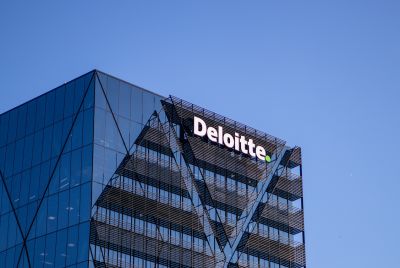Robert Thomson Blasts AI Companies for 'Stealing the News' — Inside the News Corp CEO's Explosive War on Silicon Valley
Thomson warns AI threatens journalism's financial survival

News Corp Chief Executive Robert Thomson has accused major artificial intelligence companies of 'stealing the news' by using copyrighted material from publishers to train their language models without compensation.
Speaking at the Times Tech Summit in London this week, Thomson warned that the rapid rise of AI technology poses a serious threat to the financial sustainability of journalism worldwide.
'If you're not spending billions on the content, but you are spending billions on the infrastructure, then you're making a fundamental miscalculation about the value of what you're doing,' he told delegates.
The Australian-born executive, who has led News Corp since 2013, has become one of the most outspoken figures challenging Silicon Valley's handling of intellectual property in the digital age.
Who Is Robert Thomson and Why His Words Matter
Thomson's influence extends across global media. News Corp owns titles such as The Wall Street Journal, The Times, and The New York Post, as well as book publisher HarperCollins.
His criticism carries weight not only because of the company's reach, but also because News Corp's journalism and publishing businesses are among the most frequently used sources of content by AI systems.
Under Thomson's leadership, the company has repeatedly clashed with Big Tech over issues of copyright, fair use, and the economic value of original reporting.
'The Art of the Steal': Accusations Against AI Firms
Thomson alleges that AI developers are ingesting vast amounts of copyrighted news articles and books to power their large language models without obtaining permission.
He cited examples where creative works, including Donald Trump's The Art of the Deal, were reportedly used in training datasets, quipping that the title had effectively become 'The Art of the Steal'.
As reported by The New York Post, Thomson accused AI companies of exploiting years of journalistic labour while giving nothing back. He described the situation as an imbalance where 'technology thrives while creativity withers'.
News Corp's 'Woo or Sue' Strategy
In response, News Corp has adopted what Thomson called a 'woo or sue' approach. The company has sought licensing deals with cooperative AI firms while taking legal action against others accused of copyright infringement.
For instance, News Corp subsidiaries Dow Jones and The New York Post filed a lawsuit against Perplexity AI in October 2024, accusing the company of unlawfully reproducing and summarising their articles.
At the same time, News Corp has struck licensing agreements with OpenAI and other developers to allow paid access to its archives.
Thomson said these measures are essential to ensuring journalists and publishers are fairly compensated for their work.
Industry Response and Global Legal Battles
The battle between media companies and AI firms has expanded worldwide. The New York Times and other major publishers have also launched lawsuits against OpenAI and Microsoft, arguing that their content was used without consent.
In Australia, News Corp's regional arm has labelled unlicensed scraping by AI systems as 'Grand Theft Australia'. Regulators in the UK, US, and European Union are now reviewing whether AI training constitutes fair use or breaches copyright law.
Legal experts predict that these cases could shape how AI companies acquire and use data globally.
Why the Debate Matters for Journalism
Analysts warn that unlicensed AI scraping could deepen the financial crisis facing news outlets already struggling with declining advertising revenue.
Thomson argues that if content creators are not paid, the quality and diversity of journalism could deteriorate.
A recent academic study found that nearly nine per cent of online news stories in the United States now include AI-generated content, often without disclosure.
Critics say this blurs the line between human reporting and automated production, raising concerns over transparency and trust.
As AI continues to reshape the information landscape, Thomson insists that protecting intellectual property is vital to the survival of credible journalism.
© Copyright IBTimes 2025. All rights reserved.





















